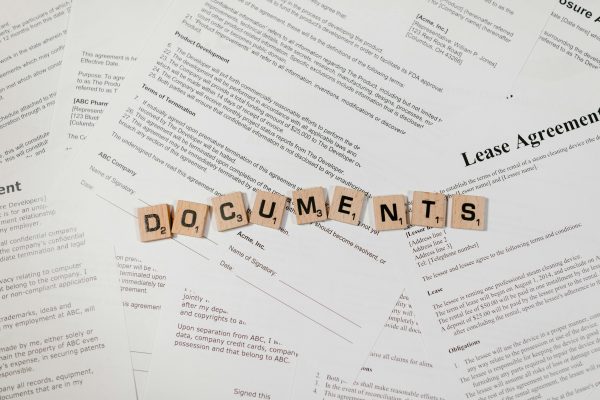Processing goods for export is a popular activity in Vietnam, enabling enterprises to take advantage of production resources and integrate more deeply into the global supply chain. However, to ensure transparency and avoid legal violations, enterprises must strictly comply with regulations on actual production norms, subcontracting capacity assessments, material and export product settlement reports. Below is a detailed analysis of the key aspects enterprises need to consider when engaging in processing activities for foreign traders.

1. Management of actual production norms for processed goods
Actual production norms are crucial in processing and manufacturing goods for export. They help enterprises determine the actual consumption of raw materials and supplies needed to produce a unit of exported product, serving as the basis for calculating production efficiency, cost control, tax settlement, and legal compliance. According to legal regulations, enterprises must establish and document these actual production norms using the prescribed form. This ensures transparency in manufacturing activities, facilitates customs authorities in inspecting and monitoring the use of imported materials, and accurately determines payable taxes in special cases.
Scrap and Defective Products: During the production process, scrap and defective products are inevitable byproducts. Enterprises must effectively manage and comprehensively report their quantities to ensure transparency and mitigate the risk of customs authorities imposing additional taxes or administrative penalties.
- Scrap: Scrap refers to material discarded during the processing or manufacturing process that no longer retains its original value but can be recovered for recycling in another production process.
- Defective products: Defective products are finished or semi-finished goods that do not meet the technical standards for specifications, size, or quality and, therefore, cannot be exported.
For example, Company A imports tobacco leaves to produce Type 1 and Type 2 tobacco strands. During processing, the tobacco leaf stems are separated, dried, compressed into cakes, and then cut into strands to produce the Type 2 tobacco strands. Consequently, Company A must establish two distinct production norms for the two types of tobacco strands, including the recycled scrap. Failure to accurately determine these recycling norms may expose the company to allegations of misusing imported materials or violating regulations on material import-export declaration.
Storage of documents and actual production norm reports: In accordance with regulations, enterprises are required to retain all data and documents related to actual production norms for reporting and auditing purposes by customs authorities.
When to report: Actual production norms must be reported annually in accordance with the fiscal year and submitted to customs authorities as part of the settlement report required by regulations. For products with long production cycles—such as shipbuilding, which has a completion period of three years—the enterprise is only required to submit the production norms report in the third fiscal year, once the product is completed. In cases where the enterprise uses materials for which a specific production norm cannot be determined, the enterprise must retain all relevant documents regarding material usage and include this information in the import-export-stock settlement report.
The key role of actual production norms: Actual production norms play a crucial role in determining the amount of tax payable when there is a change in the intended use of imported materials. Specific cases include:
-
- Change of use purpose: If imported materials are initially designated for export processing but are later redirected for domestic consumption, the enterprise must pay import duties and value-added tax (VAT) accordingly. Actual production norms serve as the basis for determining the quantity of materials whose intended use has been changed.
- Tax refund and exemption from Tax: When an enterprise completes a processing contract and exports all its products, it may be eligible for a refund of import duties on the initially imported materials. However, if the export volume does not correspond to the actual production norms, the enterprise may be denied the tax refund or subjected to additional tax collection.
- Post-clearance and specialized inspection: Customs authorities will compare the actual production norms with both the quantity of imported materials and the export volume to detect any instances of trade fraud, tax evasion, or inaccurate declarations.
2. Methods of disposing materials, scrap, and machinery/equipment in processing contracts
Depending on the specific case, foreign traders can dispose of surplus materials, supplies, and machinery using five main methods, as stipulated by contract terms and Vietnamese regulations.
- Sale in the Vietnamese market: The enterprise may sell surplus materials, supplies, machinery, or unfinished processed products to domestic partners, in accordance with contractual agreements and Vietnamese regulations.
- Export back to the foreign country: The enterprise may export surplus materials, supplies, machinery, or unused scrap back to the ordering party, in accordance with contractual terms and Vietnamese regulations.
- Transfer to another processing contract: If the ordering party enters into another processing contract in Vietnam, the enterprise may transfer the relevant materials, machinery, and equipment to the new contract.
- Gifts or donations in Vietnam: The enterprise may donate materials and machinery to domestic partners in accordance with applicable legal regulations.
- Destruction in Vietnam: If materials, supplies, or machinery become unusable, the enterprise must destroy them in compliance with environmental protection laws.
Each disposal method is accompanied by corresponding customs procedures to ensure compliance with legal regulations and fulfillment of tax obligations by the enterprise.
3. Specific regulations on customs procedures
For cases involving the sale, gift, or donation of surplus materials or machinery: If the buyer or recipient is the processing party, the enterprise must complete the procedure for changing the intended use. If the buyer or recipient is another organization or individual in Vietnam, the enterprise must follow the procedure for local import-export.
For cases where the method of handling involves exporting back materials, supplies, scrap, or defective products: whether the export occurs during the contract period or after its completion—the export procedure must be carried out in accordance with Article 48 of Decree 08/2015/ND-CP and Clause 21, Article 1 of Decree 59/2018/ND-CP.
Transferring materials or machinery to another processing contract: When transferring materials or machinery as instructed by the ordering party, the enterprise must complete the stipulated local import-export procedure. This requirement applies when the ordering party holds multiple processing contracts in Vietnam and wishes to utilize surplus materials for another contract. This approach maximizes the use of imported materials, reduces waste, and minimizes complex customs procedures.
In summary: Disposing of surplus materials, supplies, and machinery in processing contracts must strictly adhere to legal regulations to avoid tax, environmental, and customs risks. Enterprises must complete the required procedures within 30 days after the contract ends, select an appropriate handling method (such as domestic sale, export return, contract transfer, donation, or destruction), and follow the prescribed customs procedures. Additionally, maintaining proper documentation is essential to ensure compliance and prevent issues during post-clearance audits.
Processing contracts offer many benefits but also impose strict legal requirements. Each phase—from establishing production norms and managing materials to handling surplus goods and completing settlement reporting—demands accuracy, transparency, and strict adherence to legal standards. To optimize production, control costs, and minimize the risk of violations, enterprises must develop effective internal management processes, collaborate closely with customs authorities, and ensure that reports are submitted on time.
Enhancing risk management and transparency in export processing not only helps businesses operate sustainably and reduce legal risks, but also increases their competitive advantage, expands opportunities for international cooperation, and strengthens their credibility in the global market.
Time of writing: 18/03/2025
The article contains general information which is of reference value, in case you want to receive legal opinions on issues you need clarification on, please get in touch with our Lawyer at info@cdlaf.vn

Why choose CDLAF’s service?
- We provide effective and comprehensive legal solutions that help you save money and maintain compliance in your business;
- We continue to monitor your legal matters even after the service is completed and update you when there are any changes in the Vietnamese legal system;
- Our system of forms and processes related to labor and personnel is continuously built and updated and will be provided as soon as the customer requests it;
- As a Vietnamese law firm, we have a thorough understanding of Vietnam’s legal regulations, and grasp the psychology of employees, employers, and working methods at competent authorities;
- CDLAF’s team of lawyers has many years of experience in the field of labor and enterprises, as well as human resources and financial advisory.
- Strict information security procedures throughout the service performance and even after the service is completed.
You can refer for more information:
- Does your enterprise have related-party transactions? Be cautious with transfer pricing!
- Legal regulations on related-party transactions and transfer pricing in Vietnam: Control, compliance, and risk mitigation solutions
- Processing contracts for foreign countries: Legal regulations and important terms







